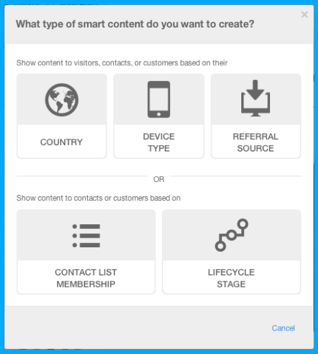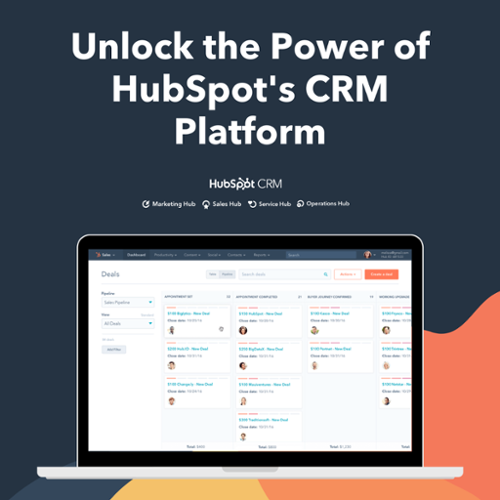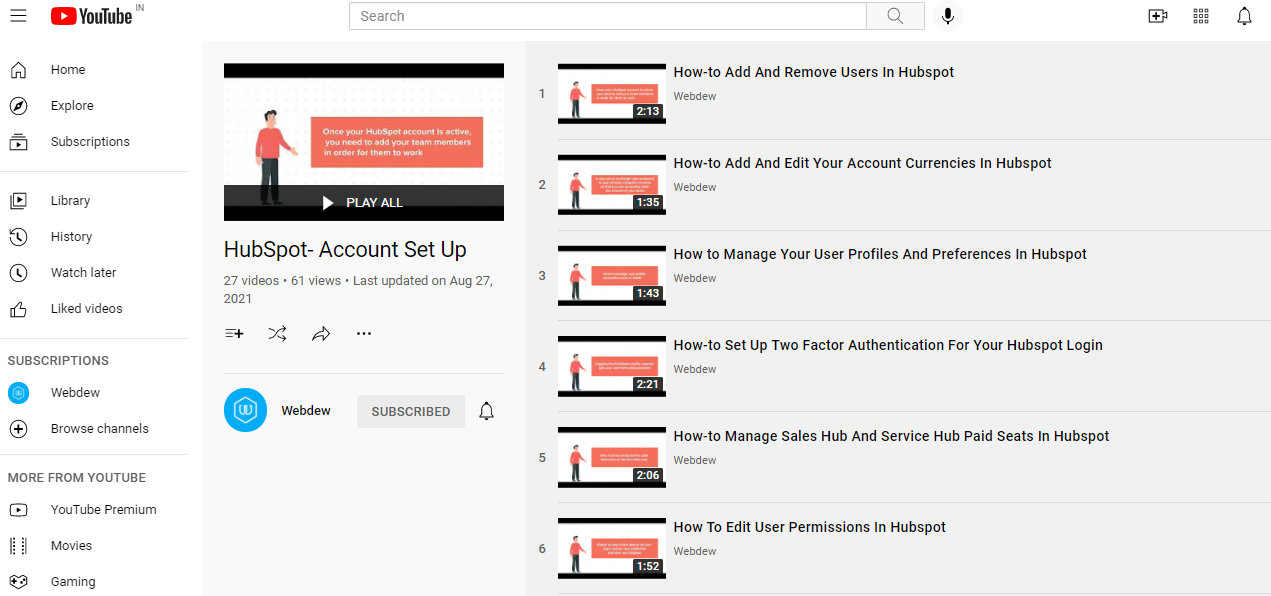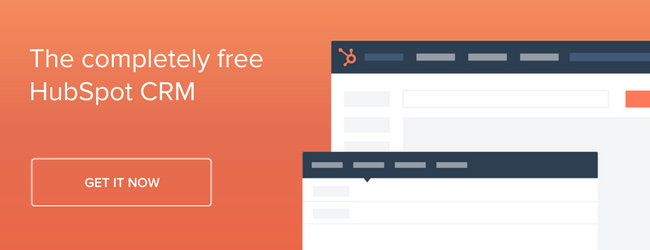If you look at the present market, you will find many vendors offering content optimization tools, providing various services and features embedded into them.
One such glimmering and ever new tool with robust and diverse features is HubSpot CMS. However, it would be unfair to list HubSpot in the same category as the other. Why?
Let us take you on a journey through HubSpot CRM to answer that.
By the end of this article, we hope to answer your questions like: "What is HubSpot CMS and why to use it?"
What is HubSpot CMS?
HubSpot is a one-stop platform where you can find multiple tools with extraordinary features. As per a survey, more than 24,000 clients are connected with HubSpot every week.
Now you can assume the popularity and quality services of HubSpot CMS stands for the content management system; it is a standard version of HubSpot's Content optimization system (CMS).
CMS is the best platform if you are looking to merge your website and marketing efforts. The feature-rich content management tool helps grow your company, providing a fully-integrated and user-friendly solution for all marketers.

It offers a variety of unimaginable options that make it a worthwhile alternative for organizations.
The HubSpot CMS brings everything you must be doing to grow your online presence in one easy-to-use panel. This ensures everything is connected and everyone reportage back to an identical place.
That means users will manage their web site, do A/B tests to examine what's operating, and receive clear and terse feedback from one login.
You can mix and match!
.png?width=450&name=what-is-hubspot-cms-and-its-interesting-benefits%20(1).png)
As it provides the platform where you will be able to keep your blog on WordPress and switch the main website and landing pages to the CMS, and it'll be absolute for your visitors.
CMS is the base of your website. As it controls the visitor's experience on-site, including:
- Website design
- Website content
- HTML
- Security
- Personalization
- Website performance
- Analytics
- Social media integration
As CMS has the integration function, it can automatically integrate with the off-site ads, customer relationship management system (CRM), email, and other marketing tools.
Pros and Cons of HubSpot CMS
Everybody wants to know the best features and loopholes of the product they wish to implement in the internal processes. So the first and foremost thing you can get familiar with HubSpot's CMS is its pros and cons and how it will benefit your business.
Indeed, there isn't a one-size-fits-all answer, but I think a rundown to this article will give you clear insights about the software and its traits, and you'll figure out whether the CMS is a good fit for you or not.
Pros of the HubSpot CMS
Let's begin with what I prefer concerning the CMS, in no specific order.
Combined Publishing
One of the most advantageous features of the CMS, especially when you want an all-in-one service is, it merges all the publishing tools into one compact solution. It is the best way to market your business on a small budget and with limited experience.
Here, you can easily edit, test, and integrate your post using the social tools combined with email and simplify the marketing stack.
"Unification makes things convenient for all."
Responsive by Default
HubSpot templates with the drag-and-drop style Manager tool are responsive by default.
If you want to edit or customize it into custom-coded templates, you must go through its docs and detailed process first and then make changes.
Expect to try and do some lightweight CSS works to repair many things here and there. Most of the themes on CMS platforms are responsive by default.
Smart Content
Smart content is the best feature of HubSpot's CMS. The ability to personalize the content CTAs on your site is dependent on the client persona, behavior, and whatever you know about the contact.
This is the tactic to convert more leads and derive a better user experience.
Contact list membership is the most magical feature CMS has as it allows you to split contacts into comminuted segments for any information you collect.

Now, the power to try and do sensible content won't mechanically improve your website.
All your success is based on your planning and strategy—putting within the attentiveness to understand the client and observe the proper personalization breakpoints.
Personalization without CMS
You can leverage sensible CTAs and progressive identification despite CMS. Insert them in your hypertext markup language, and they are good to go.
Just certify that you have got the HubSpot following snip gift on the page.
Besides, many tools allow website personalization, supported with HubSpot contact information while not including the CMS. That somewhat diminishes this profit; however, it comes at an additional price.
Here some choices which are presently evaluating and can report back on once it will be tested sufficiently:
ConvertFlow: It makes it easy to display targeted CTAs to your website visitors and HubSpot contacts by their HubSpot segmentation data.
Right message – It allows you to output data directly from your HubSpot contact records onto your website throughout each stage of your customer lifecycle.
Google AMP Support
AMP stands for Accelerated Mobile Pages and in a shell, if you insert special markup on your pages, Google will load them instantly on mobile devices, providing the searcher a fast experience.
Also Google ranks these pages on top in comparison to non-AMP pages, and there are some tacts that amplify your site and can do wonders for your organic traffic.
No need to worry for manual marking up your pages. As it is valid for the blog only and not going to apply on website Pages or Landing Pages.
Built-in CDN & SSL
Many websites working on WordPress and alternative DIY-oriented systems do not have two valuable components: the content delivery network (CDN) and the SSL.
It is by default present in CMS. With HubSpot, you get a fast and secure service without any setup because of CDN and SSL presence.
Security through Obscurity
This is a better choice over WordPress, considering its commonness, has become a prime target for hackers.
If you're not managing an internet host that has automatic upgrades and repair (including plugins), then you'll be the sufferer of one of the many exploits.
Is the CMS impermeable to hackers?
No, not at all. But it's functional enough to work without being detected. Also, its closed supply nature would possibly build it more difficult for hackers to get credulity.
Cons of the HubSpot CMS
Lock-in
HubSpot is an all-in-one tool manager.
So whenever you think to change to a selling automation tool, you need to learn how to migrate all the contacts & companies, with its all pages such as landing, thank you, analytics, timeline information & events, etc.
That's a lot of work! Now add a full web site migration to its list.
You get quite afraid once you are too dependent on one platform. This is one of the most reasons why everyone rarely uses the CMS for their website.
The HubSpot CMS for marketers and developers become exorbitantly high, as they raise the prices because you repurchase the software and again become the new client for them.
In addition to reducing the switching CMS, by hosting off-CMS, the chances of getting hampered your landing pages, email, and workflows, but your main site will be online and not affected by this.
Design Manager & HubL Learning Curve
Designing and developing for the CMS is quite different from any other content management tool you have used. Even for knowledgeable internet developers, it'll take some time to learn the CMS parlance and dev workflow.
Here's a punch list of a number of the items that you'll get to learn from scratch:
- Hubl template language
- Design Manager
- HubSpot FTP
- Content Staging
- Templates vs. coded files
- Domain stylesheets vs. template stylesheets vs. page stylesheets
- Custom modules vs. global modules vs. global groups
None of these items is tough to understand, but it takes time to get used to. Luckily, the docs are detailed and well-written, which helps you to learn quickly.
I have mixed feelings about HubL. Many selling automation platforms leverage common templating languages like Liquid.
I'm not entirely positive why HubSpot selected to travel with one thing proprietary; however, we tend to go easy.
Lastly, I've found that it is hard to find an outstanding CMS design and development talent until very recently, and it's not cheap compared to WordPress talent.
Hit me up via email if you need an agency that does stellar work on the CMS.
Limited Plugin & Theme ECMSystem
Have you browsed the HubSpot CMS theme library recently?
If you're going to build a theme on the CMS, be prepared to develop your theme from scratch.
While there are some tight happening page templates within the marketplace, you will struggle to find any full site themes worth going with.
On the other hand, there are thousands upon thousands of extremely high-quality WordPress themes to choose from. Even if you wish one thing made-to-order, you can usually find a great theme to use as a base.
As plugins go, the WordPress eCMSystem is enormous, and the HubSpot eCMSystem is tiny but growing.
If extra plug-n-play functionality (membership, forums, checkout, analytics, etc.) is in your plans, the CMS is at a disadvantage.
No Control over Backup & Recovery
You can manually export your content from the CMS and use it to restore a point-in-time version of your site instantly.
Although I am using this for the last three years and have never faced any backup or recovery issue, if you want complete control over your website's backup and recovery strategy and don't get that with the CMS, you can switch.
Over to You
Although you have to pay for the HubSpot CMS, you're getting a butt load of capabilities and functionalities to advance you in your business operations. Plus, since HubSpot contains a dedicated development team, it will continuously provide the support and service for marketing best practices, thus, meeting all expectations.
HubSpot is an excellent solution for the less tech-savvy business owner who desires a secure, flexible, and governs resolution for their website and selling want.
HubSpot's focus is generating leads through your website.
Still, if you haw any confusion, feel free to contact us. Our HubSpot experts ensure to provide the best services 24*7.
Prefer reading: 12 famous websites that use HubSpot CMS
Frequently Asked Questions
What are the benefits of HubSpot CMS hub?
HubSpot CMS Hub offers several advantages for building and managing websites. It seamlessly integrates with HubSpot's CRM and marketing tools, ensuring a unified platform for managing your web content and customer data. With its user-friendly drag-and-drop interface, website creation becomes effortless. It also provides unified website themes, streamlining the design process. Detailed contact attribution reporting aids in understanding user interactions. The platform offers SEO recommendations and simplifies content creation. Moreover, it allows for smart content driven by HubSpot's CRM, enabling personalized user experiences. These features collectively enhance website management, marketing efforts, and customer engagement.
What are the main benefits of HubSpot?
HubSpot offers several key advantages for businesses. It features a user-friendly interface that's easy to navigate. HubSpot serves as an all-in-one tool, combining various marketing and sales functions in a single platform. Its customizable structure allows tailoring to your specific needs without coding expertise. The HubSpot Marketplace offers a wide array of integrations and extensions. It boasts a broad network of partners for additional assistance. You can rely on their support for help when needed. Plus, user feedback informs continual improvements, ensuring it meets evolving business demands. These benefits make HubSpot a top choice for companies seeking streamlined, effective growth solutions.
Why is HubSpot CMS better?
HubSpot CMS offers user-friendliness through its drag-and-drop features and built-in SEO tools, making it more accessible for beginners. It also provides integrated CRM functions, streamlining marketing efforts. However, HubSpot's customization options are somewhat restricted compared to WordPress. In contrast, WordPress boasts extensive customizability but may require more technical know-how. The choice between the two platforms depends on your specific needs: HubSpot for simplicity and integrated marketing tools, or WordPress for greater flexibility but potentially steeper learning curves and additional plugin integration.
What are the benefits of CMS?
Content Management Systems (CMS) offer several advantages over static HTML websites. They are user-friendly, making it easy for people to create and manage web content without technical skills. CMS allows for quick website deployment, reducing time and effort. Maintenance and updates are simplified, ensuring that your site remains current. CMS often costs less, especially with open-source or freeware options. Additionally, CMS platforms provide a wide range of plugins and extensions, making it possible to expand your site's functionality. They also come with built-in SEO-friendly features, which can enhance your site's visibility on search engines, ultimately benefiting your online presence.










